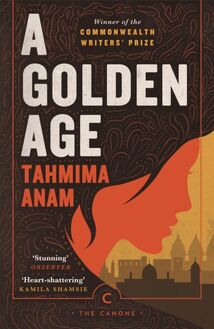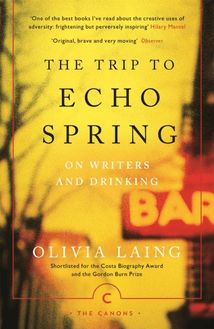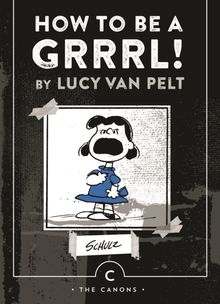-
 Univers
Univers
-
 Ebooks
Ebooks
-
 Livres audio
Livres audio
-
 Presse
Presse
-
 Podcasts
Podcasts
-
 BD
BD
-
 Documents
Documents
-
- Cours
- Révisions
- Ressources pédagogiques
- Sciences de l’éducation
- Manuels scolaires
- Langues
- Travaux de classe
- Annales de BEP
- Etudes supérieures
- Maternelle et primaire
- Fiches de lecture
- Orientation scolaire
- Méthodologie
- Corrigés de devoir
- Annales d’examens et concours
- Annales du bac
- Annales du brevet
- Rapports de stage
La lecture à portée de main
Vous pourrez modifier la taille du texte de cet ouvrage
Découvre YouScribe en t'inscrivant gratuitement
Je m'inscrisDécouvre YouScribe en t'inscrivant gratuitement
Je m'inscrisEn savoir plus
Vous pourrez modifier la taille du texte de cet ouvrage
En savoir plus

Description
Informations
| Publié par | Canongate Books |
| Date de parution | 12 novembre 2020 |
| Nombre de lectures | 0 |
| EAN13 | 9781838850593 |
| Langue | English |
| Poids de l'ouvrage | 1 Mo |
Informations légales : prix de location à la page 0,0240€. Cette information est donnée uniquement à titre indicatif conformément à la législation en vigueur.
Extrait
Yevgeny Zamyatin was a naval engineer and author. He wrote short stories, plays and essays. His masterpiece, WE , was written in 1920–21 and was banned in Russia on the grounds of being ideologically undesirable. It was quickly translated and published in many languages around the world, finally being published in Russia in 1988. Bela Shayevich is a Soviet-American writer, translator and illustrator. She translated Nobel Prize Winner Svetlana Alexievich’s Second-hand Time .
Selected works by Yevgeny Zamyatin
Short stories
Big Kids’ Fairtyales
The Dragon & Other Stories
Islanders & The Fisher of Men
Non-fiction
A Soviet Heretic: Essays
The Canons edition published in Great Britain in 2021 by Canongate Books First published in Great Britain in 2020 by Canongate Books Ltd, 14 High Street, Edinburgh EH1 1TE
canongate.co.uk
This digital edition first published in 2020 by Canongate Books
Text copyright © Yevgeny Zamyatin, 1920 Translation and Translator’s Note copyright © Bela Shayevich, 2020 Introduction copyright © O.W. Toad Ltd, 2020 ‘Freedom and Happiness’ (review of We by Yevgeny Zamyatin) © George Orwell, 1946 ‘The Stalin in the Soul’ copyright © Ursula K. Le Guin, 1989
The right of Yevgeny Zamyatin to be identified as the author of this work has been asserted by him in accordance with the Copyright, Designs and Patents Act 1988
The right of Bela Shayevich to be identified as the translator of this work has been asserted by her in accordance with the Copyright, Designs and Patents Act 1988
British Library Cataloguing-in-Publication Data A catalogue record for this book is available on request from the British Library
ISBN 978 1 83885 236 8 eISBN 978 1 83885 059 3
CONTENTS
Introduction by Margaret Atwood
WE Logs:
1. Announcement. The Wisest Line. An Epic.
2. Ballet. Quadratic Harmony. X.
3. Jacket. Wall. The Table of Hours.
4. The Savage and the Barometer. Epilepsy. If only.
5. A Square. The Masters of the World. A Pleasant and Useful Function.
6. An Incident. That Damned ‘Clear’. Twenty-four Hours.
7. An Eyelash. Taylor. Henbane and Lilies of the Valley.
8. An Irrational Root. R-13. The Triangle.
9. Liturgy. Iambs and Trochees. The Iron Hand.
10. A Letter. Membrane. My Hairy Self.
11. No, I Can’t, No Brief This Time.
12. Limited Infinities. An Angel. Thoughts About Poetry.
13. Fog. You. A Completely Improbable Incident.
14. ‘Mine’. Mustn’t. The Cold Floor.
15. The Bell. The Mirroring Sea. I Will Burn Eternally.
16. Yellow. Two-Dimensional Shadow. Incurable Soul.
17. Through The Glass. I Died. Hallways.
18. A Jungle of Logic. Wounds and Bandages. Never Again.
19. An Infinitesimal of the Third Order. Under the Brow. Over the Balustrade.
20. Discharge. What an Idea is Made Of. Zero Cliff.
21. My Duty as an Author. Swollen Ice. The Most Difficult Love.
22. Frozen Waves. Everything Is Perfected. I Am A Microbe.
23. Flowers. Dissolving Crystal. As Long As.
24. Function Limits. Easter. Cross It All Out.
25. The Descent from the Heavens. The Greatest Catastrophe in History. The End of Everything Known.
26. The World Exists. A Rash. 41°.
27. No Brief – It’s Impossible.
28. Both of Them. Entropy and Energy. An Opaque Part of the Body.
29. Face Threads. Shoots. Unnatural Compression.
30. The Final Number. Galileo’s Mistake. Wouldn’t It Be Better?
31. The Great Operation. I Forgave Everything. Crashing Trains.
32. I Don’t Believe It. Tractors. A Sliver of Humanity.
33. (No Summary, In a Hurry, the Last Thing.)
34. Freedmen. A Sunny Night. Radio Valkyrie.
35. In a Hoop. Carrot. Murder.
36. Blank Pages. The Christian God. About My Mother.
37. Infusoria. Doomsday. Her Room.
38. (Oh, I don’t know. Maybe the Entire Thing Is Just This: A Discarded Cigarette.)
39. The End.
40. The Facts. The Bell. I Am Certain.
Freedom & Happiness by George Orwell
The Stalin in the Soul by Ursula K. Le Guin
Translator’s Note by Bela Shayevich
INTRODUCTION
Margaret Atwood
I didn’t read Zamyatin’s remarkable novel, WE , until the 1990s, many years after I’d written The Handmaid’s Tale . How could I have missed one of the most important dystopias of the twentieth century, and one that was a direct influence on George Orwell’s 1984 – which was a direct influence on me?
Perhaps I missed it because I was an Orwell reader but not an Orwell scholar, and a science fiction reader but not a science fiction scholar. When I did finally come across WE , I was amazed by it. And now, reading it again in this fresh, intense translation by Bela Shayevich, I am amazed all over again.
So much in WE seems prophetic: the attempt to abolish the individual by merging all citizens with the State; the surveillance of almost every act and thought, in part through the charming giant pink ears that quiveringly listen to every utterance; the ‘liquidation’ of dissenters – in Lenin’s writing of 1918, ‘liquidation’ is metaphorical, but in WE it’s literal, as those to be liquidated are in fact transformed into liquid; the erection of a border wall that serves not just to prevent invasion but to keep citizens inside; the creation of a larger-than-life, all-knowing, all-wise Big Brotherish Benefactor who may be simply an image or a simulacrum – all these details foreshadowed things to come. So did the use of letters and numbers rather than names: Hitler’s extermination camps had not yet engraved numbers on their inhabitants, and we of this age had not yet become the fodder for algorithms. Stalin had yet to forge the cult of his own personality, the Berlin Wall was decades in the future, electronic bugging had not been developed, Stalin’s show trials and mass purges would not take place for a decade – yet here is the general plan of later dictatorships and surveillance capitalisms, laid out in WE as if in a blueprint.
Zamyatin was writing WE in 1920–21, while the civil war that followed the Bolshevik-dominated October Revolution was still ongoing. Zamyatin himself, having been a member of the movement before 1905, was an Old Bolshevik (a group slated for liquidation by Stalin in the 1930s because they stuck to their original democratic-communist ideals instead of going along with Comrade Stalin’s autocracy) – but now that the Bolsheviks were winning the civil war, Zamyatin didn’t like the way things were going. The original communal committees were becoming mere rubber-stampers for the power élite that had emerged under Lenin and would be solidified by Stalin. Was this equality? Was this the flowering of the individual’s gifts and talents that had been so romantically proposed by the earlier Party?
In his 1921 essay, ‘I Am Afraid’, Zamyatin said: ‘True literature can exist only when it is created, not by diligent and reliable officials, but by madmen, hermits, heretics, dreamers, rebels and sceptics’. In this he was a child of the Romantic movement, as was the Revolution itself. But the ‘diligent and reliable officials’, having seen which way the Lenin–Stalinist wind was blowing, were already busying themselves with censorship, issuing decrees about preferable subjects and styles, and pulling out the unorthodox weeds. This is always a dangerous exercise in a totalitarianism, since weeds and flowers are likely to change places in the blink of an autocrat’s eye.
WE can be viewed in part as a utopia: the goal of the One State is universal happiness, and it argues that since you can’t be both happy and free, freedom has to go. The ‘rights’ over which people were making such a fuss in the nineteenth century (and over which they continue to make such a fuss now) are viewed as ridiculous: if the One State has everything under control and is acting for the greatest possible happiness of everyone, who needs rights?
WE follows a long line of nineteenth century utopias that also proposed recipes for universal happiness. So many literary utopias were written in the nineteenth century that Gilbert and Sullivan created an operatic parody of them called Utopia, Limited . A few highlights are Bulwer-Lytton’s The Coming Race (a superior human race lives underneath Norway, with an advanced technology, inflatable wings, reason over passion, and females who are bigger and stronger than males); News from Nowhere by William Morris (socialist and equal, with arts and crafts, artistic clothing, and every female a Pre-Raphaelite stunner); and A Crystal Age by W.H. Hudson, in which people not only have beauty and artistic clothing, but are rendered happy, like the Shakers, through having no interest in sex whatsoever.
The later nineteenth century was obsessed with ‘the woman problem’ and ‘the new woman’, and not a single utopia – and then not a single dystopia – could refrain from tinkering with existing conventions concerning sex. Nor could the U.S.S.R. Its early attempts to abolish the family, to raise children collectively, to allow instant divorce, and, in a few cities, to decree it a crime for a woman to refuse to have sex with a male Communist (nice try, guys!) created such a farcical and shambolic misery that Stalin backpedalled furiously in the 30s.
But Zamyatin was writing in the early, fermenting period, and it is this cluster of attitudes and policies that WE satirises. Though people live in literal glass houses, with all of their actions transparent, they lower their blinds modestly for the hour of sex, booked in advance via pink ticket and duly recorded by an older woman in the foyer of each apartment building, according to regulations. But though everyone has sex, only women who meet certain physical specifications are allowed to have children: eugenics was considered ‘progressive’ at this time.
As in Jack London’s 1908 novel, The Iron Heel – a dystopia hoping for a utopian future – and also in Orwell’s 1984 , the driving forces of dissent in WE are female. D-503, the male protagonist, begins as a dedicated member of the One State, preparing to send a rocket into the uni

Ebooks
Chronicle In Stone
Ismail Kadaré


Ebooks
Notes From Underground
Fyodor Dostoyevsky


Ebooks
Golden Age
Tahmima Anam


Ebooks
Complete Short Stories
Muriel Spark


Ebooks
Out of Sheer Rage
Dyer Geoff


Ebooks
Trip to Echo Spring
Olivia Laing


Ebooks
Guantanamo Diary
Ould Slahi Mohamedou


BD
How to be a Grrrl
M. Schulz Charles


Ebooks
Millstone
Margaret Drabble


Ebooks
Peppered Moth
Margaret Drabble


Ebooks
Bachelors
Muriel Spark


Ebooks
Hawkline Monster
Brautigan Richard


Ebooks
Getting it in the Head
Mccormack Mike


Ebooks
Born on the Fourth of July
Ron Kovic


Ebooks
Sea Around Us
Rachel Carson

-
 Univers
Univers
-
 Ebooks
Ebooks
-
 Livres audio
Livres audio
-
 Presse
Presse
-
 Podcasts
Podcasts
-
 BD
BD
-
 Documents
Documents
-
Jeunesse
-
Littérature
-
Ressources professionnelles
-
Santé et bien-être
-
Savoirs
-
Education
-
Loisirs et hobbies
-
Art, musique et cinéma
-
Actualité et débat de société
-
Jeunesse
-
Littérature
-
Ressources professionnelles
-
Santé et bien-être
-
Savoirs
-
Education
-
Loisirs et hobbies
-
Art, musique et cinéma
-
Actualité et débat de société
-
Actualités
-
Lifestyle
-
Presse jeunesse
-
Presse professionnelle
-
Pratique
-
Presse sportive
-
Presse internationale
-
Culture & Médias
-
Action et Aventures
-
Science-fiction et Fantasy
-
Société
-
Jeunesse
-
Littérature
-
Ressources professionnelles
-
Santé et bien-être
-
Savoirs
-
Education
-
Loisirs et hobbies
-
Art, musique et cinéma
-
Actualité et débat de société
- Cours
- Révisions
- Ressources pédagogiques
- Sciences de l’éducation
- Manuels scolaires
- Langues
- Travaux de classe
- Annales de BEP
- Etudes supérieures
- Maternelle et primaire
- Fiches de lecture
- Orientation scolaire
- Méthodologie
- Corrigés de devoir
- Annales d’examens et concours
- Annales du bac
- Annales du brevet
- Rapports de stage





